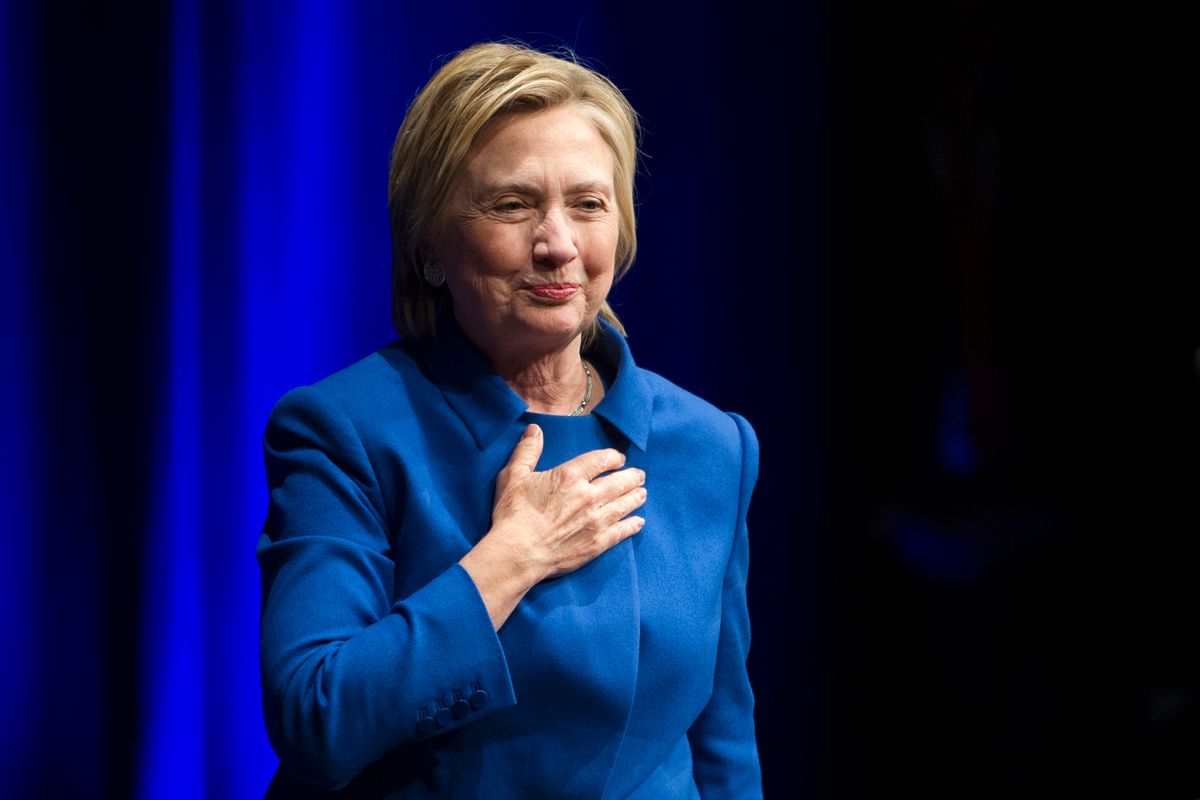Despite telling Hillary Clinton that she'd "be in jail" if he became president and egging on his crowds to chant "Lock her up!" it appears that Donald Trump isn't going to pursue charges against their former Democratic rival.
"I think when the president-elect, who's also the head of your party now, Joe, tells you before he's even inaugurated he doesn't wish to pursue these charges it sends a very strong message, tone, and content to the members," explained senior adviser Kellyanne Conway, who has been downplaying Trump's promise to jail Clinton, during an appearance with "Morning Joe" on Monday. "And I think Hillary Clinton still has to face the fact that a majority of Americans don't find her to be honest or trustworthy. But if Donald Trump can help her heal then, perhaps, that's a good thing."
In fact, this may not be a good thing.
It is dangerous to let people think the President decides who gets prosecuted in our criminal justice system. Stop fucking doing it.
— Jon Favreau (@jonfavs) November 22, 2016
Believed Trump would actually ask a special prosecutor to investigate Clinton:
39% of Americans
62% of Trump voters
25% of Clinton voters pic.twitter.com/QyNgfzPwak— Will Jordan (@williamjordann) November 22, 2016
Aside from the fact that a majority of Trump's supporters believed the president-elect would appoint a special prosecutor to investigate Clinton for creating a private email server, Trump also seemed to be operating under the belief that as president, he gets to decide who is targeted for prosecution.
"Under the laws and Justice Department regulations governing federal prosecution, a President Trump would not have legal authority to direct the Attorney General to appoint a special prosecutor to ‘look into’ Hillary Clinton’s email situation or the Clinton Foundation or anything else," explained Laurence Tribe, professor of constitutional law at Harvard Law School, in an email to Fortune Magazine after the second presidential debate. "That’s not within a president’s power."
Jim Jacobs, a professor at New York University's School of Law, echoed Tribe's analysis.
"It is essential that the Department be apolitical with respect to its choice of law enforcement targets and to its exercise of prosecutorial discretion," he told Fortune, adding that it would be "very improper if the president were to be making phone calls to the attorney general with respect to a particular target of investigation. I don’t know of any president who has done that. If it had been revealed to have happened in the past it would have been a scandal."
Just as Trump wouldn't have had the right to order his Attorney General (most likely Sen. Jeff Sessions of Alabama) to pursue charges against Clinton, so too would he not have the right to order the Department of Justice to not pursue those charges.



Shares